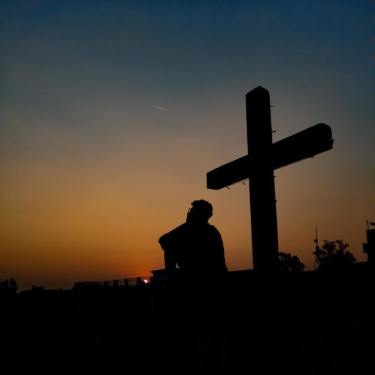
The National United Christian Forum (NUCF), a joint platform of India’s three largest Christian bodies representing the Church in India, has strongly condemned the release of ‘Sanatani - Karma hi Dharma’, an Odia film that opened in theatres on February 7, 2025, amid growing controversy over its portrayal of religious conversion in Odisha.
In a strongly worded press release, the NUCF, which brings together the Catholic Bishop’s Conference of India (CBCI), National Council of Churches in India (NCCI), and Evangelical Fellowship of India (EFI), stated that the film “derogatorily portrays Jesus Christ, Christians and Christian services, distorting the image of Jesus, key aspects of Christian doctrine, particularly the sacrament of Baptism, and misrepresenting conversion as a criminal activity”.
The controversy surrounding the film has been brewing since late January, when its trailer sparked concerns about its depiction of tribal conversions and land appropriation. The Christian community in Kandhamal had previously appealed to Chief Minister Mohan Charan Majhi to halt the film’s release, expressing fears about potential communal tension.
The film’s journey to the screens has been marked by regulatory hurdles. Initially denied certification by the Central Board of Film Certification’s (CBFC) regional office in Cuttack, the producers secured a UA certification from CBFC’s Mumbai office after changing the film’s title from ‘Hey Ram: Karma Hi Dharma’ to its current name and implementing certain edits.
Legal attempts to prevent the film’s release were unsuccessful when the Orissa High Court, led by Acting Chief Justice Arindam Sinha and Justice M S Sahoo, refused to grant a stay order despite two petitions citing concerns about public order. The court has kept the matter pending for further consideration on February 19, seeking responses from both the Union and state governments.
The film’s producer, Bijay Kandoi, and lead actor Sambit Acharya have defended the production. Acharya maintains that while religious conversion is the film’s central theme, it doesn’t target any specific religion but rather depicts “reality”. The film is currently showing in 15 theatres across Odisha.
The NUCF’s statement particularly emphasised the constitutional aspects of religious freedom, noting that “the right to freedom of religion, including the right of a citizen to convert to any religion of choice, is enshrined in the Constitution of India, and any attempt to undermine this fundamental right is unconstitutional”.
The forum also highlighted the historical context of religious violence in Odisha, referring to “the agonizing history of atrocities and violence faced by Christian communities” in the state. They warned that the film could “perpetuate false narratives, incite hatred and violence among peaceful communities in the region”.
The controversy extends beyond Odisha, with the NUCF drawing attention to recent incidents of religious violence in Chhattisgarh and Uttar Pradesh. The organisation criticised what it termed as “the failure of Government machineries to ensure safety and security of minorities”.
While acknowledging the importance of freedom of expression, the NUCF has called upon authorities to intervene and stop the film’s screening, arguing that such freedom must be exercised with caution to prevent the targeting of any community or faith. The forum has appealed to the government, civil society, and the public to maintain peace and harmony in the region.
The film, directed by Basudev Bard, also addresses other social issues such as witchcraft, according to its creators, though the controversy has primarily centred on its treatment of religious conversion.




